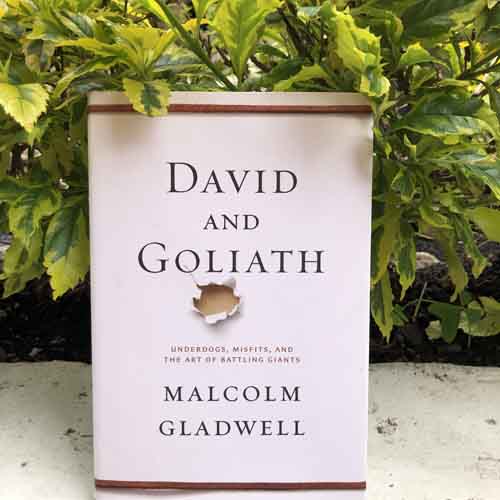In "David and Goliath," Malcolm Gladwell delves into the world of underdogs and misfits, challenging conventional wisdom about success and advantage. He argues that what we perceive as disadvantages can often become hidden strengths, and those who defy expectations can achieve remarkable things.
Lessons from "David and Goliath" by Malcolm Gladwell:
1. Reframing Disadvantages
The book argues that perceived disadvantages can often become hidden advantages. For instance, dyslexia may enhance creativity, or a lack of formal education may foster resourcefulness and independence.
2. Embracing Misfits and Outliers
Gladwell celebrates the triumphs of those who don't fit the mold, highlighting the contributions of "misfits" and "outliers" who challenge the status quo and drive innovation.
3. The Power of Underdogs
The David and Goliath narrative resonates because it embodies the underdog's spirit and the potential for achieving success even when facing seemingly insurmountable odds.
4. Leveraging Constraints and Limitations
Limited resources and constraints can foster creativity, resourcefulness, and innovative problem-solving. Necessity often becomes the mother of invention.
5. The Role of Adversity
Challenges and setbacks can be catalysts for growth and resilience. Overcoming adversity can develop strength, character, and perseverance.
6. Recognizing the Advantage of Late Bloomers
Late bloomers often have the benefit of observing and learning from others before taking their own path, potentially leading to greater success in the long run.
7. The Importance of Culture and Context
Success is not solely dependent on individual talent or effort. Cultural factors, context, and opportunities all play a significant role in shaping outcomes.
8. Questioning Conventional Assumptions
The book encourages readers to critically examine widely held beliefs and assumptions about success and failure, opening doors to new perspectives and possibilities.
9. Embracing the Power of Small Wins
Small victories, seemingly insignificant in the moment, can accumulate over time and contribute to larger achievements and long-term goals.
10. The Ripple Effect of Individual Action
Individual actions, even those of apparent underdogs, can have a significant impact beyond their immediate circumstances, inspiring others and sparking positive change.




